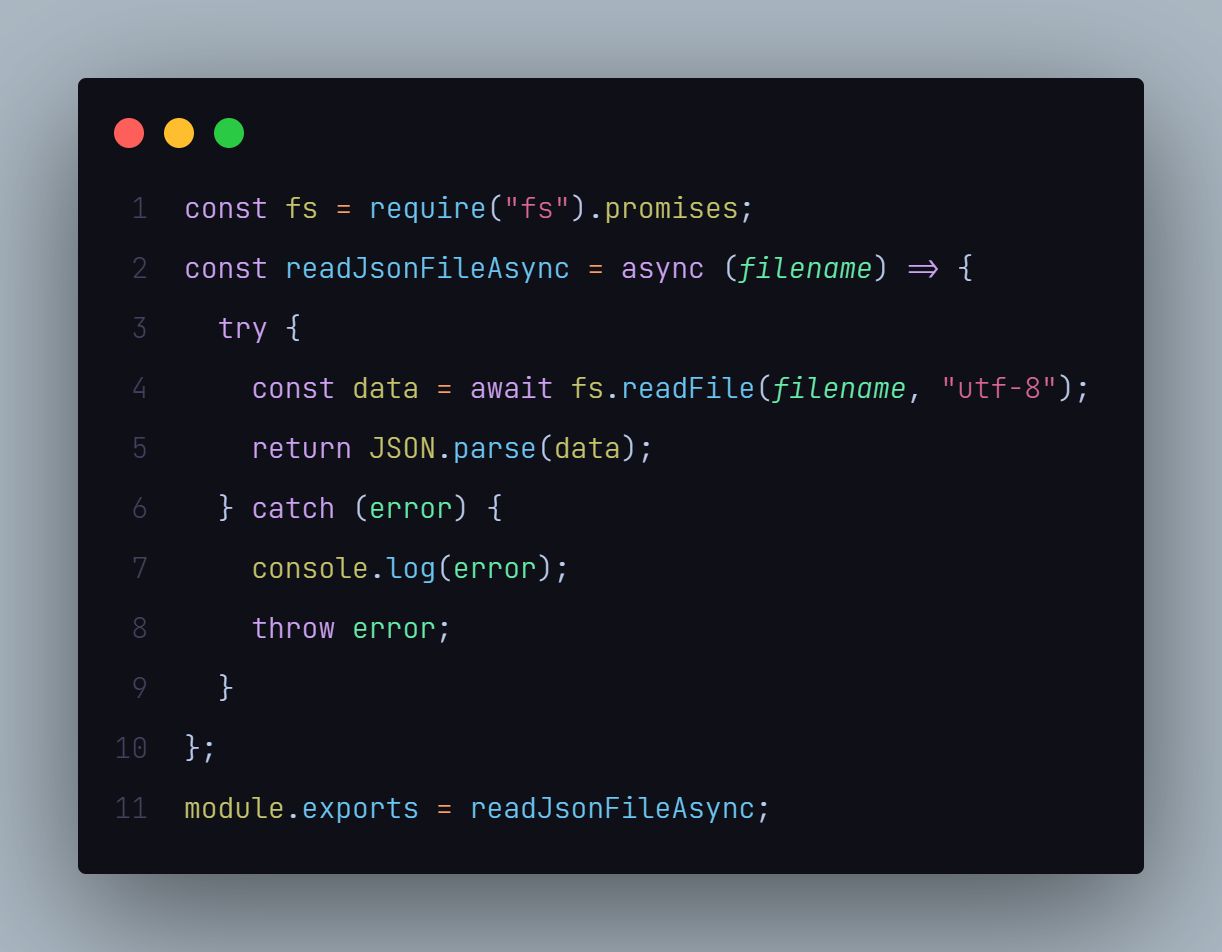
Introduction
In the realm of Node.js development, managing and consolidating data from various JSON files is a frequently encountered challenge. This article delves into an effective approach for parsing and consolidating information from three JSON files: posts.json, comments.json, and users.json. By the conclusion of this tutorial, you will gain a comprehensive understanding of how to handle these files and generate a fresh array of objects that encapsulate posts along with their corresponding comments and user information.
Understanding the Problem
Before delving into the solution, let's grasp the challenge at hand. We have three JSON files: posts.json containing post data, comments.json with comment details, and users.json storing user information. The goal is to create a new array of post objects, each enriched with its associated comments and the user who made each comment.
Solution Overview
In this guide, we'll present two solutions to address the problem. Both solutions leverage Node.js capabilities, emphasizing clean code and readability. The choice between them depends on your coding preferences and project requirements.
Solution 1
Sequential File Reads
- The first solution involves reading the JSON files sequentially using the fs and util modules. Here are the key steps:
- Read JSON Files Asynchronously: Utilize the promisify function to convert the traditional callback-based fs.readFile into a promise-based operation.
- Read Each File: Read posts.json, comments.json, and users.json one by one.
- Merge Data: For each post, find its associated comments and the user who posted each comment. Create a new array of post objects with comments and user details.
- Handle Errors: Implement error handling for robust file reading and data merging.
Solution 2
Parallel File Reads
This second solution enhances efficiency by reading the JSON files in parallel using fs.promises and Promise.all. Here's a brief overview:
- Utilize fs.promises: Leverage the promises module for asynchronous file operations, simplifying the code.
- Parallel File Reads: Use Promise.all to read all three files concurrently, improving performance.
- Data Merging: Similar to Solution 1, merge data by associating comments with their respective posts and users.
- Error Handling: Ensure robust error handling for file reads and data merging.
Reading and Merging the Data
The LoadPosts function is the core component of the solution. Its purpose is to read and merge data from three JSON files (posts.json, comments.json, and users.json) to create a new array of post objects. Each post object in the resulting array is enriched with its associated comments and the user who made each comment. Let's break down the LoadPosts function step by step:
Code Explanation:
File Reading:
The function starts by using the readJsonFileAsync utility function to asynchronously read the contents of posts.json, comments.json, and users.json.
The await keyword is used to ensure that each file is read before proceeding.
Data Merging:
The comments.map method is used to iterate through each comment in the comments array.
For each comment, a new array commentsWithUsers is created by finding the user using the comment's associated userId.
The posts.map method is used to iterate through each post in the posts array.
For each post, a new array (postWithComments) is created by filtering the commentsWithUsers array to include only comments associated with the current post.
Resulting Data Structure:
The resulting structure is a new post object for each original post in the posts array.
Each post object includes an additional property, comments, which is an array of comments associated with that post, with each comment enriched with user details.
Error Handling:
The entire operation is wrapped in a try-catch block to handle any errors that might occur during file reading or data merging.
If an error occurs, it is logged to the console, and the error is rethrown for higher-level error handling.
In summary, the LoadPosts function is responsible for orchestrating the reading and merging of data from three JSON files, resulting in a new array of post objects with associated comments and user details.
By following this guide, Node.js developers will be equipped with efficient techniques for handling and merging data from multiple JSON files, enhancing their ability to manage complex data structures within their applications.





Post a Comment
0Comments